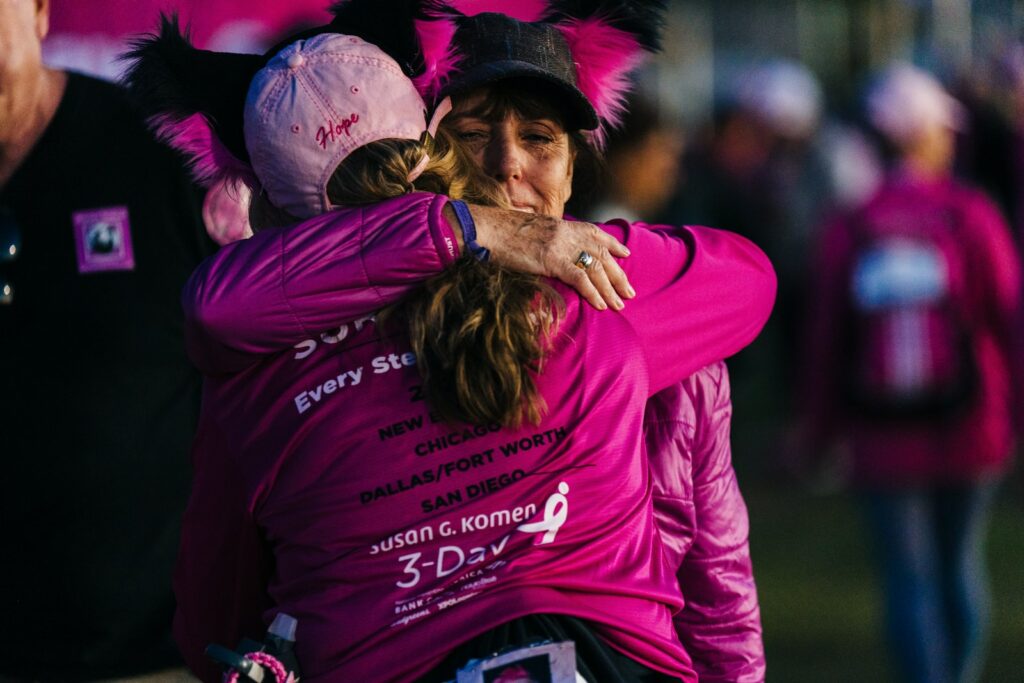The Power of forgiveness – healing wounds and rebuilding relationships

Forgiveness is a powerful tool for healing wounds and rebuilding relationships that have been strained by hurt and pain. Loneliness which is a significant problem in modern society and often associated with the inability to forgive ourselves and others. According to a survey by the Kaiser Family Foundation, around 22% of adults in the United States report feeling lonely or isolated, and this number has been increasing over time. The ability to forgive can be challenging, but it is essential for your mental health and rebuilding connections with others.
Forgiveness has become a prevalent issue, with more and more people feeling disconnected and isolated and can help break down the barriers that prevent us from forming successful relationships and provide a path towards connection and healing. In this article, we will explore the importance of forgiveness in building meaningful relationships, moving on from hurt and pain and healing old wounds.

Table of Contents
What does science say about forgiveness?
Forgiveness is a powerful tool that can have a significant impact on both your physical and mental health. The science behind forgiveness reveals that it can lead to a range of positive outcomes, such as reducing the risk of heart attacks, improving cholesterol levels, and even enhancing sleep quality. Forgiveness has been shown to lower levels of anxiety, depression, and stress, while also alleviating pain and decreasing blood pressure.
If you’re looking to improve your well-being, practicing forgiveness might be just the remedy you need. Research has shown that not being able to let go can have negative impacts on both physical and mental health, increasing the risk of conditions such as heart disease, depression, feeling disconnected and anxiety.
When we hold onto anger and resentment, it can create barriers between us and other people, leading to feelings of isolation and loneliness. But when we forgive, we open ourselves up to the possibility of reconnecting with others and rebuilding relationships that may have been damaged. This can help to reduce feelings of loneliness and increase social support, which can have significant benefits for our mental and physical health.
Forgiveness has been shown to have a positive impact on the brain. Research has found that forgiving others can activate the brain’s reward center, releasing feel-good chemicals like dopamine and serotonin. This can lead to a sense of calm and relief, as well as increased feelings of happiness and well-being. Additionally, forgiveness has been linked to reduced activity in the amygdala, the part of the brain that is responsible for processing negative emotions like anger and fear.
The science of forgiveness suggests that it can have significant benefits for both our mental and physical health. By letting go of anger and resentment and cultivating forgiveness, we can increase social support, combat loneliness, and promote feelings of happiness and well-being.

Healing wounds with forgiveness to rebuild relationships that matters
Forgiveness can be the glue that mends the broken pieces of a relationship. It’s like a soothing balm that can help heal emotional wounds and mend shattered hearts. When emotional unavailability has caused pain and distance between two people, forgiveness can make all the difference in whether or not the connection can be restored.
But forgiveness is not always easy. It can be a difficult and sometimes painful process, especially if the hurt caused by emotional unavailability runs deep. However, the rewards of forgiveness are immeasurable. It can bring a sense of peace and closure, allowing both parties to move forward and rebuild the connection.
Forgiveness involves acknowledging the hurt and pain caused by emotional unavailability and choosing to let go of the anger, resentment, and bitterness that may be holding you back. It doesn’t mean forgetting or excusing the behaviour, but it does mean choosing to release the negative emotions and thoughts associated with it.
By practising forgiveness, you open up the possibility for a deeper and more meaningful connection with your partner. It allows for vulnerability and openness, which are key ingredients in building trust and intimacy. Forgiveness also requires empathy and understanding, which can help you see things from your partner’s perspective and create a more compassionate and loving relationship.
Remember, forgiveness is a process, not a one-time event. It takes time, effort, and commitment to work through the hurt and pain caused by emotional unavailability. But if both parties are willing to do the work and commit to the process, the rewards of forgiveness can be life-changing. So, take the first step towards forgiveness and open yourself up to the possibility of a more fulfilling and meaningful connection.
When we hold onto anger and resentment, it can feel like we are carrying a heavy burden with us at all times. These negative emotions can weigh us down and cause us to feel isolated, lonely, and unhappy. It’s no surprise then that studies have shown a link between loneliness and mental health issues, such as depression and anxiety.
Forgiveness is a powerful tool that can help us to release these negative emotions and move forward. By choosing to forgive, we are not excusing the hurt that was caused, but rather we are choosing to let go of the pain and allow ourselves to heal. This can be a difficult process, but it is a necessary one for our mental and emotional well-being.

Finding Closure Through Forgiveness
Forgiveness is not only about letting go of resentment and anger, but it’s also about rebuilding relationships. Forgiveness can help heal wounds, restore trust, and create a deeper connection between two individuals.
Rebuilding a relationship after a hurtful experience takes time, effort, and patience. It’s important to understand that forgiveness doesn’t mean forgetting what happened or excusing the behavior that caused the pain. Instead, it’s about acknowledging the hurt and pain while choosing to move forward with compassion and understanding.
Forgiveness is a process that involves several stages. The first stage is acknowledging the hurt that was caused and the emotions that we are feeling as a result. This can be painful, but it is an important step in the healing process.
The next stage is deciding to forgive. This is a choice that we make, and it involves letting go of our anger and resentment towards the person who hurt us. This can be a difficult choice to make, but it is one that can lead to immense healing and growth.
Healing and moving forward may involve setting boundaries with the person who hurt you, practicing self-care and self-compassion, and finding ways to cultivate positive emotions in our lives.
Journaling can be a powerful tool for self-reflection and healing as it involves self-reflection and a better quality of your inner conversations. It can help you process your emotions, gain clarity on your thoughts and feelings, and identify patterns in your behavior. Here are some journaling prompts to help you reflect on forgiveness and work towards healing:
- What does forgiveness mean to you? How has your understanding of forgiveness evolved over time?
- Think about a time when you were hurt by someone. What did you learn from that experience? How did it shape your views on forgiveness?
- Reflect on the person who hurt you. What led them to behave in that way? How might they have been feeling at the time?
- Consider the ways in which you might have contributed to the situation. Did you do anything to exacerbate the conflict? How might you have responded differently?
- What emotions are you experiencing in relation to the situation? Are there any emotions that you have been avoiding or suppressing?
- Think about what you need in order to heal. What kind of support do you need from others? What self-care practices can you incorporate into your life?
- Consider what forgiveness might look like for you. What would it mean to fully forgive the person who hurt you? How would it feel to let go of the anger and resentment?
There are no right or wrong answers, and it’s important to be kind with yourself and others as you reflect on these questions. Allow yourself to fully explore your thoughts and emotions without judgment, and trust that the process of self-reflection will lead you towards healing and growth.
Here are some questions to get you started:
- What emotions am I feeling as a result of the hurt that was caused?
- What beliefs or thoughts do I have that may be preventing me from forgiving?
- What boundaries do I need to set in order to feel safe and secure?
- What can I do to practice self-care and self-compassion during this time?
- How can I cultivate positive emotions, such as love, compassion, and forgiveness, in my life?
By taking the time to reflect on these questions, you can begin to understand your own emotional landscape and work towards healing the wounds that have been caused. Remember, forgiveness is a process, and it takes time and effort. But with patience, compassion, and a willingness to let go of the past, you can build stronger, healthier, and more fulfilling relationships.

Steps to take when healing and rebuilding relationships:
When you’re in a situation where you’ve caused hurt or have been hurt, it’s important to acknowledge those feelings. You and the other person involved should have the opportunity to express your emotions and work towards finding a solution.
If you’re the one who has caused the hurt, take responsibility for your actions and apologize sincerely. Show the other person that you are committed to making things right by working on changing your behavior. It’s important to show empathy by trying to understand the other person’s perspective and showing them compassion.
Effective communication is key to rebuilding a relationship. Be transparent and honest about your thoughts and feelings. Practice active listening to ensure that both parties feel heard and understood. By committing to open and effective communication, you can work towards finding a resolution and rebuilding a stronger relationship.
Remember that healing takes time and effort. It’s important to stay committed to making things right and working towards a better future together. With patience, empathy, and effective communication, you can find closure through forgiveness and rebuild a stronger relationship.

In rebuilding a relationship through forgiveness, it’s important to understand that it’s not just about saying sorry and moving on. It takes effort, commitment, and patience to rebuild trust and connection.
Acknowledging the hurt is the first step towards healing. You need to recognize the pain and damage caused by the situation. By doing so, you allow yourself and the other person to express their feelings and emotions. This creates a safe space for communication and allows for healing to begin.
Taking responsibility is equally important. If you have caused the hurt, it’s crucial to own up to your actions and apologize sincerely. And if you have been hurt, it’s important to express how the actions affected you. This allows for accountability and promotes understanding.
Making a commitment to change is the next step. This means working on changing the behavior that caused the hurt in the first place. Show the other person that you are taking responsibility for your actions and are willing to work on making things right. This demonstrates your willingness to invest in the relationship and can help rebuild trust.
Practicing empathy is another key aspect of forgiveness. Put yourself in the other person’s shoes and try to understand their perspective. This can help you see things from a different angle and foster compassion and understanding.
Communication is the cornerstone of any healthy relationship. It’s important to communicate effectively by being honest and transparent with each other about your thoughts and feelings. Practice active listening to ensure that both parties feel heard and understood. This can help you avoid misunderstandings and work towards rebuilding the relationship with empathy and compassion.
In the end, forgiveness isn’t about forgetting what happened or pretending that everything is okay. It’s about finding a way to move forward with mutual respect and understanding. By following these steps, you can rebuild a relationship from the ground up and create a deeper, more meaningful connection with the people in your life.

Turning over a new leaf to heal the hurt and forgive the pain
Forgiveness is like turning over a new leaf in life. It’s a fresh start, a second chance to make things right. Just like how the leaves change colors in autumn, forgiveness brings about a transformational change in ourselves and in our relationships.
When we forgive, we give ourselves and the other person the opportunity to start anew. It’s a chance to move past the pain and hurt that once weighed us down and start on a new path towards healing and growth.
But forgiveness isn’t just about forgetting the past and moving forward. It’s about acknowledging the hurt and pain caused by the situation, taking responsibility for our actions, and committing to change. It requires communication, empathy, and understanding.
When addressing hurt and pain, effective communication is crucial. It’s important to express how the actions affected us and to listen to the other person’s perspective. Active listening ensures that both parties feel heard and understood.
One effective communication technique is the use of “I” statements. This approach helps to avoid placing blame on the other person and instead focuses on our own emotions and experiences. For example, instead of saying “You hurt me,” try saying “I feel hurt by what happened.”
Another helpful technique is to avoid using language that is accusatory or confrontational. This can escalate the situation and make it difficult to find common ground. Instead, try to use language that is respectful and non-judgmental.
Forgiveness is not always easy, and it may take time to fully heal and rebuild a relationship. But by committing to change, practicing empathy and effective communication, we can turn over a new leaf and start on a path towards a stronger and healthier relationship.
Forgiveness can be a powerful tool for healing and rebuilding relationships. By acknowledging the hurt, taking responsibility, practicing empathy, and communicating effectively, individuals can work towards finding closure and moving forward with compassion and understanding.






